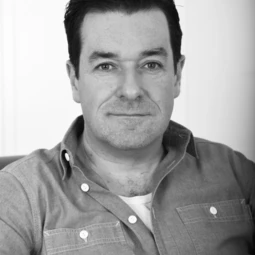
You can be pretty sure that every time you clap your hands another leadership training ‘thought leader’ has posted a quote from someone like Captain Obvious, Simon Sinek, stating some insultingly basic advice the average human being already knew. For this remains an industry worth a whopping $400bn to those feeding off it, and yet despite all this thought leadership, experience and expertise, we are still decrying the calibre of our leaders ability to take us out of our never-ending productivity paradox or even basically treating us like adults.
Even the age-old MBA route for hierarchical supremacy for impressionably moneyed young professionals isn’t helping. These data-obsessed MBAs optimise anything they can analyse — as if the future will always behave like the past. Lost within the sanitised academia of it all, they don’t seem to imagine that driving down costs by chopping headcount (as displayed by the Tech bros recently) and suppressing wages (as displayed by the many for a generation) will hurt performance in the long run. And they believe the cuts are justified because they’re based on rigorous analysis.
When the Facts Change, I Change My Mind. What Do You Do, Sir?
If our era of complexity has thrown up both unpredictable market conditions and a winning focus on getting ideas and value from groups of complex people, then a market of leadership soothsayers driving simple soundbites is part of a problem and not the solution. Of course, some of my own people tribe add to this confusion with a rather ridiculous premise that the function alone is some last line of humanity against the scourge of other evil business function leaders they tend to blame without any sense of irony. Is the new “Sensemaking” just dressing up Taylor’s one hundred-year-old solution that we need thinkers at the top of the hierarchy to communicate to the doers at the coalface. And for some leaders the ongoing collusive relationship with their HR teams is borne out of the fact that traditional HR is needed, a bit like some of the other support functions, to provide for some certainty in this unpredictable world. Simplistic slogans and generational stereotypes dominate this kind of thinking.
Look, we don’t need some conflated human-centred buzzword campaign but a realisation that success is predicated today on holding a positive view of all our people, collaborating to drive ideas and where mastery trumps the hierarchy of the organisation chart. If we could cleanse ourselves of the old programmes, outdated thinking and initiatives that have peppered the organisation over the last few years and rely on the simple premise that our role is to ensure we build organisations both capable of delivering value to the market and organised resiliently enough to take on the next unplanned shockwave. Spoiler alert – that’s a system with more decentralisation, a dispersed view of leadership across the workforce and less hero worshipping to those demonstrating an illusion of control and power at the top.
In today’s world, we must surely recognise that complexity is neither good nor bad but, like the weather, it just ‘is’. All we can do is prepare our businesses to thrive and survive in that changing context. The out workings of the employee issues in front of us, such as the composition of the working week, our use of workspace post-pandemic, allowing technology to complement our culture and our enduring response to a global cost of living crisis means leaning into these with the wrong lens could your business. The all-knowing, controlling leader persona is not the man of our age and only those willing to embrace the new facts with equally new, evidence-based thinking, will ultimately succeed. We are at the cusp of tackling concerns over a decline in productivity with an over-exuberant commitment to automate and digitalise our everyday work. But clearly the better thinking is that we should not take promises of gains in productivity at face value. Instead, we should challenge the ways we measure productivity by considering the invisible types of tasks humans can accomplish, beyond the more visible work that is usually rewarded. That’s the problem-solving space I want to see leaders and their respected teams, HR included, resolve in the next few years rather than the lighthouse thinking of corrosive quarterly bust or booms, delivered by short-term thinking leaders, at the behest only of the shareholder economy.
So, lots to do. But years into an time where the Taylorist playbook no longer applies, hierarchical bureaucracy with individuals reporting to bosses is still the norm in many of our businesses. Whilst on the upside, 83% of leaders find it essential to reflect on their own leadership style, according to Egon Zender’s study, poor leadership training is still trying to tell you that putting lipstick on the old command and control management model will suffice.
Be careful, without the right context, and a willingness to understand the mindset or culture of your company, even the best-intentioned leadership programs will not stick.
Now, whilst you can either try and be more mindful of your leadership development investment, why not consider hiring me on a fractional basis, gaining the unique advantage of a seasoned HR practitioner on a part-time or ad hoc basis, to help you develop an effective principle-led People & Talent strategy.
Find out more at www.barryflack.co.uk or get in touch directly via me@barryflack.co.uk for an initial conversation.












